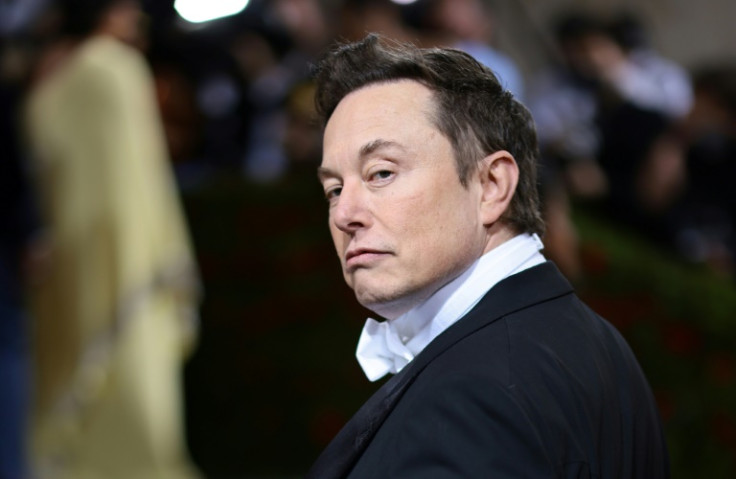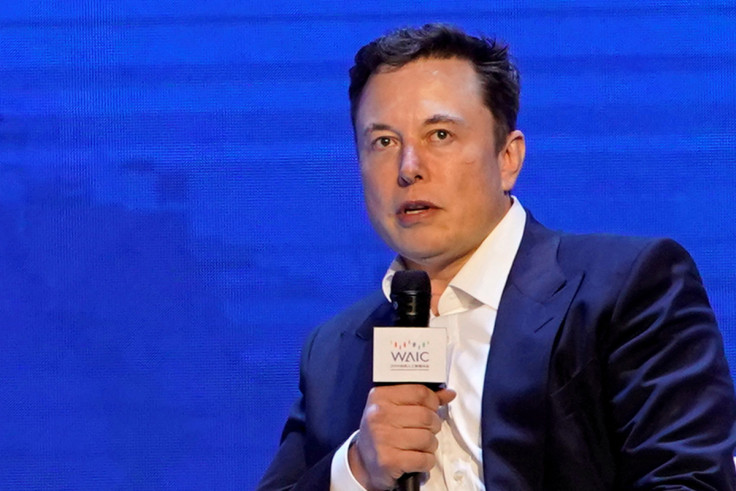Twitter Reacts After Elon Musk Removed New York Times' Verified Check Mark

KEY POINTS
- The New York Times said Thursday that it would not pay Twitter for verification of its account
- The removal of The Times' check mark came after Elon Musk responded to a meme mocking the newspaper's announcement
- The Twitter CEO allegedly said there would be a "grace" period of a few weeks before non-paying checks would be removed
The New York Times lost its verified check mark Sunday after Twitter CEO Elon Musk announced efforts to crack down on users who refused to pay for Twitter Blue.
On Thursday, the newspaper declared that it doesn't intend to pay the $1,000 per month required to keep its verified status, nor pay for members of its staff to retain their blue checks, The Daily Beast reported.
Following the announcement, a Twitter user shared a "Jurassic Park" meme showing Musk telling The Times that "no one cares" about its statement that it won't pay for verification.
Musk responded to the meme, writing: "Oh ok, we'll take it off then," according to screenshots provided by reporter Ken Klippenstein. Hours later, the Times' verified badge was removed.
Musk reportedly announced in late March that the deadline for verified Twitter users to apply and keep their verified status was April 1. Individuals can get blue checks for a starting price of $7, while organizations will have to pay $1,000 a month to have gold check marks, Reuters reported.
On Saturday, Twitter began removing blue check marks from verified users who did not pay for its Twitter Blue subscription service, but according to a software developer tracking the activity, only "a few dozen" verified accounts, including The New York Times, lost their check marks as of Sunday.
The New York Times is Twitter's 24th most-followed account. It has 54.9 million followers as of the weekend.
One account has lost its verification badge: NYT, for saying it wasn’t going to pay for it pic.twitter.com/FdCdN0YUE9
— Ken Klippenstein (@kenklippenstein) April 2, 2023
The removal of The Times' verified status received mixed responses from Twitter users, with some taking jabs at Musk.
"Did he simply look at a meme and believe NYT said that and go ahead to delete their blue tick?" one person asked, suggesting that Musk did not fact-check the meme mocking the newspaper's announcement. Klippenstein responded, "Sure seems that way."
"There is no meme he won't fall for," another claimed of the billionaire.
"I mean, the NYT can kiss my caboose, but this is the pettiest thing I've seen in a LONG while. And I once walked to the station in wind and rain for a week to stop the woman next door taking the parking space directly in front of our house," comedian Sooz Kempner wrote.
But other users defended the move, with one tweeting: "It's commerce. I would also lose my car if I were to stop paying for it."
"Elon cleaning up Twitter, I like it!" another wrote.
On Sunday, the SpaceX and Tesla CEO also took to his Twitter account to criticize The Times, tweeting, "The real tragedy of @NYTimes is that their propaganda isn't even interesting."
He added, "Also, their feed is the Twitter equivalent of diarrhea. It's unreadable. They would have far more real followers if they only posted their top articles. Same applies to all publications."
Musk also reacted to an image edited to show The Times' Twitter account with a clown emoji on the spot where the blue check mark used to be.
The billionaire accused the newspaper of being "hypocritical" as well as "super aggressive about forcing everyone to pay *their* subscription."
NY Times is being incredible hypocritical here, as they are super aggressive about forcing everyone to pay *their* subscription
— Elon Musk (@elonmusk) April 2, 2023
Musk allegedly said in a since-deleted tweet that there would be a "grace" period of a few weeks before the checks of non-paying verified users would be removed, "unless they tell they won't pay now," which would lead to the removal of the check, according to screenshots obtained by journalist Matt Binder.
Hours after the removal of its verified badge, a spokesperson for The New York Times told Reuters that the newspaper won't pay to maintain its verification.
"We also will not reimburse reporters for Twitter Blue for personal accounts, except in rare instances where this status would be essential for reporting purposes," the spokesperson added.
Several other news organizations, including the Los Angeles Times, the Washington Post, BuzzFeed, Politico and Vox, have also declared that they would not pay for Twitter Blue verifications.

© Copyright IBTimes 2024. All rights reserved.












